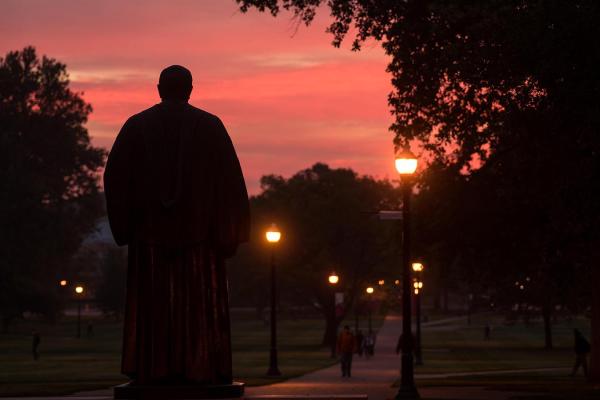Edward J. Kane 1936-2023

Edward “Ed” J. Kane, Professor Emeritus in the Department of Economics, passed away recently.
Dr. Kane received his BS (1957) in economics from Georgetown University and a PhD (1960) in economics from the Massachusetts Institute of Technology. He taught at Princeton, Iowa State, and Boston College before he joined the Ohio State Department of Economics faculty in 1972 as the Everett D. Reese Professor of Banking and Monetary Economics. During his 20 years as the Reese Professor, he left an incredible imprint on Ohio State. Specializing in banking and financial regulation, Dr. Kane authored three books as well as hundreds of academic articles, which are highly cited and recognized around the world. Notably, he was one of the few economists to foresee the Savings and Loan debacle of the 1980s and coined the phrase “zombie bank” to describe an insolvent financial institution that continues operating due to explicit or implicit government support.
A prolific scholar, he will be missed for his enormous influence in the field. He was perhaps the youngest president of the American Finance Association, a president of the International Atlantic Economic Society and the North American Economics and Finance Association, a research associate of the National Bureau of Economic Research (NBER) for decades, a founding member of the Shadow Financial Regulatory Committee, a consultant for the International Monetary Fund (IMF) and World Bank and held many other high-profile assignments. He co-founded the Journal of Financial Services Research (JFSR), a finance journal that remains active to this day.
Dr. Kane remained attached to Ohio State after he moved on to a position at Boston College as the inaugural James F. Cleary Chair in Finance in 1992. He remained in touch with his Ohio State colleagues and attended Finance alumni conferences in the years before his passing. He continued to exert a major influence on the Journal of Money, Credit, and Banking (JMCB), a prestigious economics journal housed at the Department of Economics, through the banking editor of the journal. Banking editors who served the journal over the years consider him an intellectual giant, an inspiring scholar in banking, and a mentor.
His interests outside of academics were diverse. He was inspired by his love of comic books and horror movies to coin the now-ubiquitous term “zombie bank.” He enjoyed watching boxing and baseball. He was blind in one eye. Light-hearted and humorous, he took delight in telling people to look into his normal eye when talking to him. He and his wife Gloria were Catholic, and they attended Sunday mass regularly. Ed was a ‘people person’. He hosted many parties in his house. He had a great relationship with the benefactor of his chaired position. When Mr. Reese would visit campus, Ed would always buy him lunch. Mr. Reese got a kick out of that.
Dr. Kane was a wonderful teacher and mentor. Caring deeply about his students, he took a family-oriented approach to PhD advising. Ed viewed his students as his children, and their students his grandchildren. One prominent student reflected fondly on a moment of tough love, when Ed refused to communicate with him until he turned in his next chapter of the dissertation. Just as relationships continue after children leave home, his mentorship was for a lifetime. Ed continued to mentor his students long after their graduations and contributed to their career success. To encourage and inspire, Ed went out of his way to credit students for their contributions. Students remember interacting with Gloria as well.
Dr. Kane left an indelible mark on many academic journeys. His position, Reese Professor, called for splitting time between Economics and Finance. Instead of two half-time jobs, it seems Ed worked both jobs full-time. Annual activity reports at the time were made public, to inspire Economics faculty to step up their research. His activity reports, always the lengthiest, served as a beacon of diligence and commitment. They set the standard for junior faculty. He was generous with his time. He attended seminars and offered invaluable insights and encouragement. Ed's passing leaves a void in our academic community, but his legacy of leadership and camaraderie will forever remain a source of inspiration and gratitude for those who knew him.
